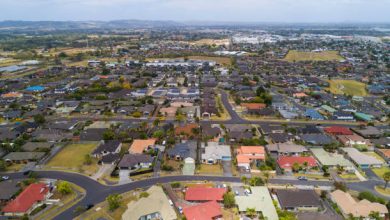Why Real Estates Are Key Factors in Boosting Economy

The financial crisis in 2008 was a major trigger for the economic crisis, but few realized the sharp decline in home prices. Median home prices were down about 4% from their peak in October 2005, but economists could not agree on the severity of the housing market decline. While stock market corrections, recessions, and bear markets have well-established definitions, housing market corrections are not.
Increased confidence
The booming real estate market has an impact on many areas of an economy. Rising home values spur construction and related services, boosting consumption and the economy. Consumers also spend more on home improvements, including interior design and pool installation. Rising home values also affect the distribution of labor. Rising prices can cause shortages of lower-wage workers in some regions.
While the bursting of the real estate bubble is often regarded as the starting point of the financial meltdown that resulted in the Great Recession, many economists and politicians attempted to address the situation. Several different policy measures were proposed and implemented by different groups of people. Ultimately, the Fed and Obama administration chose to implement some policies that proved effective, while others didn’t.check out blue world city location
Economic recovery
Several economic indicators have been cited to illustrate whether real estate is a factor in the economy’s recovery. The Bureau of Labor Statistics releases employment figures and local unemployment rates on a monthly basis. When these numbers rise, there are signs that the economy is recovering. Various indicators include consumer spending, unemployment insurance claims, and the new home construction market.
While the economy is recovering from the recession, the real estate market is still struggling. There are many property owners experiencing financial difficulties, and some may be willing to sell for a bargain. This is a great opportunity for investors who are looking to invest in real estate. Investing during this time may yield a significant return, particularly if you purchase properties at reduced prices.
Interest rate declines
When interest rates are lower, people spend more money. Lower interest rates stimulate the economy, especially for businesses and farmers. When interest rates are low, people spend more on capital equipment and increase their output. On the other hand, when interest rates are high, consumers and businesses cut back on spending. And when interest rates are high, lenders tighten their lending standards.
In this context, long-term interest rates have fallen to near-historical lows. Those declines are due in part to structural factors – lower global saving and expectations. But these declines in interest rates also reflect a shift in the term premium for long-term bonds.
Government policies
The real estate industry is a huge source of wealth. Rising property values encourage people to build new homes and upgrade existing ones. These increases in demand lead to a boom in the construction industry and other related services. It can also spur the demand for home furnishings, interior design, and swimming pools. Real estate is one of the most important drivers of local and national economies.
Real estate has historically acted as a strong inflation hedge. Inflation increases the replacement costs of existing assets, but it also restricts new construction, which tends to keep rents high. Furthermore, real estate is often financed with debt, which allows owners to take advantage of rising prices in the future to pay off their liabilities.
see also rudn enclave Islamabad location
Supply and demand
When we talk about the supply and demand of real estates, we should consider the fact that land is finite and cannot be replicated or manufactured. This is why a shortage of land to build homes cannot be solved by moving land. As a result, land will always remain a locally sourced commodity.
The demand for land is influenced by the overall economy. If the economy is struggling, demand for land and property tends to be lower. Another important factor is affordability. The affordability of a home compared to the income of a household can either increase or decrease demand. Renting a property is also a factor that affects real estate demand.



